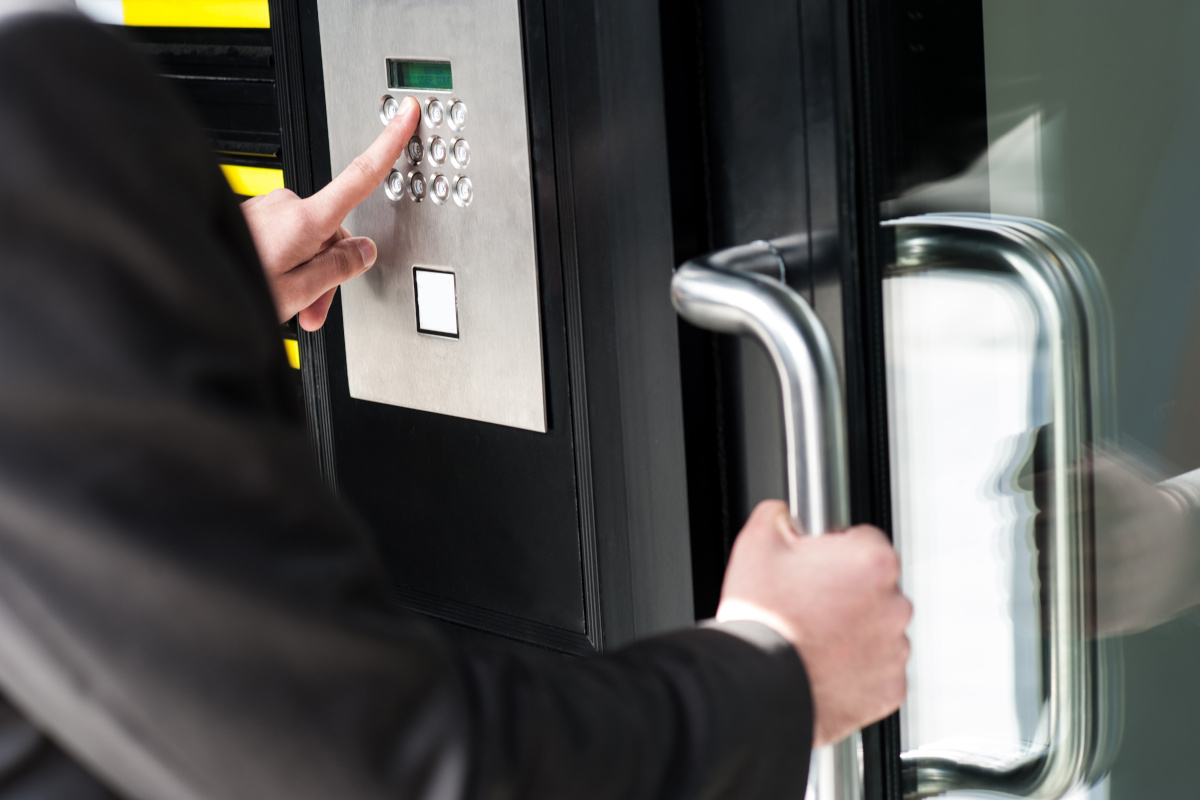What are the Benefits of an Access Control System?
January 17th, 2024 by admin

In an era where data breaches and security threats are on the rise, businesses and organizations are increasingly turning to advanced security solutions to safeguard their premises, assets, and sensitive information.
Among these solutions, Access Control Systems (ACS) have emerged as a fundamental component in establishing a robust security infrastructure.
In this article, we will explore the key benefits of Access Control Systems and understand why they have become a cornerstone of modern security strategies.
Advantages of Access Control Systems
Enhanced Physical Security
One of the primary benefits of an Access Control System is the ability to enhance physical security. Traditional lock and key systems are susceptible to unauthorized duplication or loss, compromising the security of a facility.
Access Control Systems, on the other hand, utilize electronic credentials such as keycards, biometric scans, or PIN codes. This not only reduces the risk of unauthorized access but also allows for quick and efficient updates when credentials need to be added, modified, or revoked.
Restriction of Unauthorized Access
Access Control Systems provide organizations with the ability to control who enters specific areas of a facility. Through customizable access levels and permissions, businesses can ensure that only authorized personnel gain entry to sensitive areas, such as server rooms, executive offices, or research laboratories.
This granularity of control minimizes the risk of internal threats and protects valuable assets from unauthorized access.
Comprehensive Activity Monitoring
Another significant advantage of Access Control Systems is their ability to provide detailed logs and reports on user activity.
These systems track entries and exits, providing a comprehensive overview of who accessed a particular area, at what time, and for how long. This feature is invaluable for security audits, investigations, and compliance with regulatory requirements.
Integration with Other Security Systems
Access Control Systems are designed to integrate seamlessly with other security systems, creating a holistic security ecosystem. Integration with surveillance cameras, alarms, and intercom systems allows for a more proactive approach to security.
For example, if an unauthorized access attempt is detected, the system can trigger alarms, notify security personnel, and even activate surveillance cameras to capture real-time footage of the incident.
Flexibility and Scalability
Access Control Systems offer unparalleled flexibility, adapting to the evolving needs of businesses. Whether an organization is small or large, an ACS can be tailored to fit its specific requirements.
As the business grows, the system can easily scale to accommodate additional doors, users, and access points. This scalability ensures that the security infrastructure can evolve in tandem with the organization's expansion.
Reduction in Security Costs
While the initial investment in an Access Control System may seem significant, it often results in long-term cost savings.
Eliminating physical keys and the associated risks of rekeying or replacing locks can lead to substantial cost reductions over time. Additionally, the enhanced security provided by ACS can contribute to lower insurance premiums, making it a financially prudent investment.
Increased Employee Productivity
Access Control Systems contribute to increased employee productivity by streamlining access procedures. Employees no longer need to carry numerous keys or wait for someone to unlock secure areas for them.
With electronic credentials, access is granted swiftly and efficiently, allowing employees to focus on their tasks without unnecessary delays.
Emergency Response and Lockdown Capabilities
Access Control Systems offer quick response capabilities in emergencies, such as a security threat or natural disaster.
The system can initiate lockdown procedures, restricting access to certain areas and safeguarding individuals within the premises. This feature is crucial for minimizing potential harm and ensuring the safety of occupants.
Compliance with Regulatory Standards
Many industries are subject to stringent regulatory standards concerning physical security and data protection.
Access Control Systems assist organizations in meeting these standards by providing audit trails, access logs, and other documentation necessary for compliance. This not only helps avoid legal repercussions but also enhances the overall reputation and trustworthiness of the organization.
User-Friendly Interface and Remote Management
Modern Access Control Systems come with user-friendly interfaces and remote management capabilities. This allows administrators to easily configure settings, add or remove users, and monitor system activity from a centralized location.
The convenience of remote management is especially valuable for businesses with multiple locations, offering a cohesive and efficient approach to security management.
The benefits of Access Control Systems extend far beyond traditional security measures. As businesses continue to prioritize the protection of their assets, information, and personnel, the adoption of Access Control Systems is poised to remain a critical step toward achieving a secure and resilient environment.
If you want to learn more about Access Control Systems, contact us today.
Posted in: Solutions
